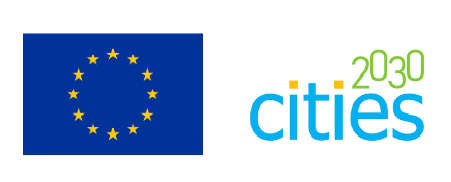Co-creating resilient and sustainable food systems towards FOOD2030 (CITIES2030)
Today, more than 70% of people live in and around cities, and the demand for food is growing, especially organic and local (Latvian-produced) food. Existing urban and regional food systems are unsustainable, and society expects and demands a change. To help prevent and reduce food waste, reduce the environmental impact of food production and food waste, and promote access to healthy food for all, it is essential to make and develop smart human-centered food systems that cover all stages of the food chain: primary production, processing, logistics (transport, supply, storage), trade, consumption, and re-use.
The CITIES2030 project, funded by the European Union’ s Horizon 2020 science and research support program, will seek and test solutions to restructure or reshape the various stages of the food chain to meet the challenges and needs of the 21st century society. CITIES2030′ s vision is to develop and connect short food supply chains gathering consumers, strategic and industry partners, civil society, business, leading universities and researchers from different disciplines involved in building the food security ecosystem for cities and regions.
Within CITIES2030, policy and living labs will be established and tested in 2 regions (including Vidzeme) and 9 EU cities, which will be further adapted and implemented in a total of 50 EU cities or regions. As a result of the pilot activities carried out during the project, the participating cities and regions will create the preconditions for improving the food security ecosystem, enabling businesses to invest more efficiently, the public sector to use resources more efficiently to supply food which is received in the most environmentally and socially friendly way possible.
Three partners from Latvia are involved in the project: Vidzeme Planning Region as a pilot site for testing solutions, the Latvian Rural Forum as a representative of civil society interests and Riga Technical University – a provider of scientific substantiation.

